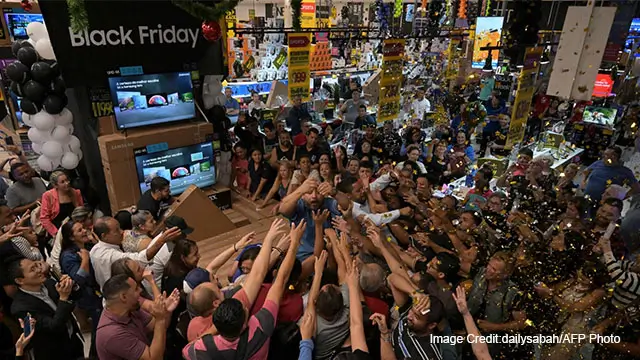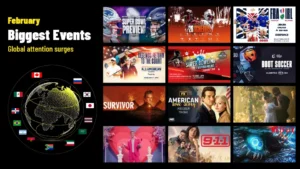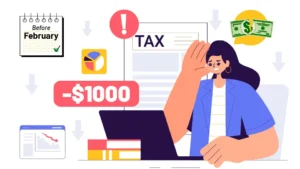Black Friday, once a single day of doorbuster sales, has transformed into a months-long shopping event that can feel both exciting and overwhelming. With retailers rolling out deals as early as October and sales stretching through Cyber Monday, the modern Black Friday landscape requires strategy, not just enthusiasm. Whether you’re shopping for tech, home goods, or holiday gifts, knowing these insider secrets can help you navigate the chaos, spot genuine deals, and save more of your hard-earned money.

1. Black Friday Is No Longer Just One Day
Gone are the days when Black Friday meant camping outside stores on the Friday after Thanksgiving. The event has expanded into a weeks-long marathon of discounts. In 2025, Black Friday falls on November 28, but many major retailers launch their “early Black Friday” sales in early November, or even late October. Some, like Amazon, Walmart, and Target, now have multiple sale events throughout November. This means you don’t have to cram all your shopping into one frantic day.
2. The Best Deals Aren’t Always on Black Friday
Paradoxically, some of the best prices appear before Black Friday. Shopping early is often worth it, especially for items on your wishlist that are already discounted. Early sales can help you avoid sold-out items and shipping delays, which are common closer to the holidays. If an item you want is already on sale and you’re worried about it selling out, buy it—many retailers offer price matching during the holiday season, so you can get a refund if the price drops later.
3. Not All “Deals” Are Actually Deals
Retailers often use flashy “sale” tags on items that aren’t priced much lower than usual. To avoid fake discounts, always do your price research. Tools like CamelCamelCamel (for Amazon price history), Keepa, and Honey allow you to track a product’s price over time. This helps you see if that “50% off” TV is truly a historic low or just a minor markdown from an inflated list price. Being armed with data is your best defense against marketing hype.
4. Doorbuster Deals Have Moved Online
The term “doorbuster” originally referred to incredibly limited, in-store-only deals designed to get shoppers through the doors. Today, these lightning deals are primarily online. To snag them, you need to be prepared to act fast: refresh the product page at the exact start time and ensure you’re logged into your account with payment details saved for a quick checkout. If a deal sells out, don’t panic; similar offers often pop up at competing retailers.
5. Price Tracking Tools Are Your Secret Weapon
As mentioned, price trackers are a smart shopper’s best friend. Beyond the tools already listed, sites like Slickdeals and BlackFriday.com aggregate deals spotted by a community of savvy shoppers. You can set up deal alerts on these platforms to get notifications when specific items you’re watching hit your target price. This crowdsourced approach means you have thousands of people helping you scout for the best discounts.
6. Big-Ticket Items Are Worth the Wait
While it’s good to shop early for many things, high-value categories like TVs, major appliances, laptops, and high-end headphones are often at their absolute lowest prices on Black Friday itself. Retailers use these items as loss leaders to attract customers, so the discounts can be substantial. If you’re planning a major purchase, this is the time of year to pull the trigger.
7. Loyalty Programs Offer Early Access
One of the easiest ways to get a head start is to join retailer loyalty programs. Many stores reward their members with early access to Black Friday sales and exclusive discounts. For example, members of programs like Target Circle or Kohl’s Rewards often get to shop deals before the general public and can earn bonus rewards (like Kohl’s Cash) on their purchases. This can be the difference between securing a hot item and finding it sold out.
8. Cyber Monday Is (Mostly) for Tech
While the lines between Black Friday and Cyber Monday have blurred, Cyber Monday (December 1 in 2025) still tends to feature standout deals on tech products, particularly laptops, headphones, and tech accessories. However, many Black Friday deals simply continue through the weekend. The key is to not assume a deal will disappear; it might even get better.
9. Bundle Deals Can Unlock Hidden Savings
Keep an eye out for retailer bundles, which can offer incredible value. Stores like Best Buy, Newegg, and Micro Center often bundle products—like a gaming console with a popular game or a CPU with a compatible motherboard—at a significantly reduced total price. These bundles are especially common for electronics and PC components and can represent the deepest discounts of the season.
10. Your Budget and List Are Non-Negotiable
The biggest secret to Black Friday success is simple: make a plan and stick to a budget. Before the sales begin, create a list of the items you genuinely need or want to buy as gifts. Research their typical prices and set a “strike price” for each—the maximum you’re willing to pay. This disciplined approach will help you avoid impulse buys on items you don’t need, no matter how enticing the “discount” may seem. A clear plan is your best defense against overspending.
By understanding these secrets, you can shift from being a reactive shopper caught in the frenzy to a proactive, strategic hunter. This Black Friday, equip yourself with knowledge, tools, and a solid plan to confidently navigate the sales and secure the best possible deals.





